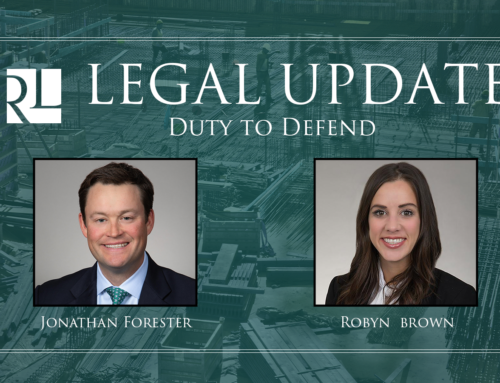The case involved a dispute between a subcontractor and a sub-subcontractor on a Corps of Engineers project in Baton Rouge. The subcontractor, Westcoast Corporation (Westcoast), entered into a contract with the general contractor to relocate a sewer system. Westcoast subcontracted the work to RCS Contractors, Inc. (RCS). Several delays and disruptions prevented timely completion of the work, including unforeseen site conditions and severe weather. The project also had to be redesigned, resulting in additional delays. RCS stopped worked without completing its punchlist, alleging it had not been paid. RCS and its owner filed suit against Westcoast for damages. After a jury trial, the district court found in favor of RCS and awarded a judgment of $501,556.60, including penalties under the Louisiana Prompt Pay Act and attorney’s fees and costs. The appeals court remanded for further proceedings after finding the district court erred in calculating the damages.
The appeals court made four major rulings. Perhaps the most important holding was that a “written construction contract may be modified by oral agreement and by the conduct of the parties, even when the contract provides that change orders must be in writing.” Although Louisiana courts have often reached the same conclusion, this unequivocal ruling from the U.S. Fifth Circuit provides ammunition for subcontractors trying to circumvent the standard contract provision requiring change orders to be in writing. In effect, a mandatory written change order provision is virtually unenforceable in Louisiana.
The Alonso court also issued a ruling that inhibits the enforceability of delay damages clauses. The contract between Westcoast and RCS contained a standard “no damages for delay” provision stating that “in no event will the Contractor be liable for Subcontractor’s claims for delay.” RCS argued that the provision was null and void due to Westcoast’s conduct. Louisiana law says that any contract provision is null and void if it excludes or limits liability for intentional or gross fault or bad faith. Upon finding sufficient evidence that Westcoast breached the contract in bad faith, the court upheld the district court’s ruling that invalidated the delay damages clause in the contract.
The Fifth Circuit also tacitly endorsed the doctrine of “substantial breach,” which has a mixed history in Louisiana jurisprudence. This legal theory holds that one party’s substantial breach of a contract can be used by the other contracting party to preclude enforcement of the contract if one breach caused the other. This doctrine has been sparingly applied by Louisiana courts. Westcoast argued that RCS substantially breached the contract by (1) failing to complete clean-up and close-out procedures; (2) failing to turn over as-built drawings; and (3) failing to complete punchlist items. The court ultimately determined that Westcoast did not prove that RCS committed a substantial breach that justified its own breach of the contract. However, in applying the defense without observing its limited acceptance by Louisiana courts, the Fifth Circuit seemingly adopted the substantial breach defense without reservation.
Finally, the court concluded that the jury miscalculated the Prompt Pay Act penalty and remanded for further consideration. The Louisiana Prompt Pay Act, La. R.S. 9:2784, allows a subcontractor to recover one-half of one percent for every day that an undisputed amount is not paid after receipt of payment by the contractor. The penalty is capped at 15% of the outstanding amount. The court determined that the jury erroneously applied the statutory penalty to the entire amount owed by Westcoast to RCS. The penalty should have been applied only to the amount that Westcoast had been paid by the general contractor for RCS’s work and which Westcoast had not paid to RCS.



